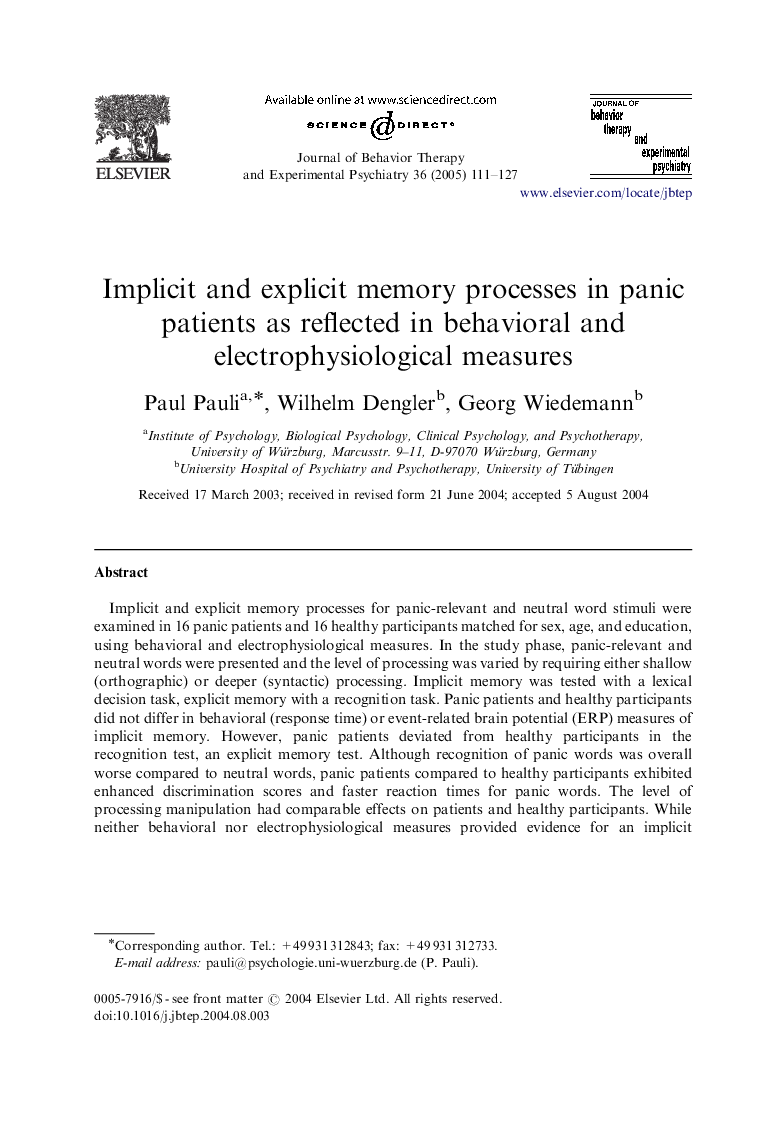| Article ID | Journal | Published Year | Pages | File Type |
|---|---|---|---|---|
| 10448403 | Journal of Behavior Therapy and Experimental Psychiatry | 2005 | 17 Pages |
Abstract
Implicit and explicit memory processes for panic-relevant and neutral word stimuli were examined in 16 panic patients and 16 healthy participants matched for sex, age, and education, using behavioral and electrophysiological measures. In the study phase, panic-relevant and neutral words were presented and the level of processing was varied by requiring either shallow (orthographic) or deeper (syntactic) processing. Implicit memory was tested with a lexical decision task, explicit memory with a recognition task. Panic patients and healthy participants did not differ in behavioral (response time) or event-related brain potential (ERP) measures of implicit memory. However, panic patients deviated from healthy participants in the recognition test, an explicit memory test. Although recognition of panic words was overall worse compared to neutral words, panic patients compared to healthy participants exhibited enhanced discrimination scores and faster reaction times for panic words. The level of processing manipulation had comparable effects on patients and healthy participants. While neither behavioral nor electrophysiological measures provided evidence for an implicit memory bias in panic patients, behavioral measures confirmed an explicit memory bias in panic patients for panic-relevant stimuli.
Keywords
Related Topics
Health Sciences
Medicine and Dentistry
Psychiatry and Mental Health
Authors
Paul Pauli, Wilhelm Dengler, Georg Wiedemann,
